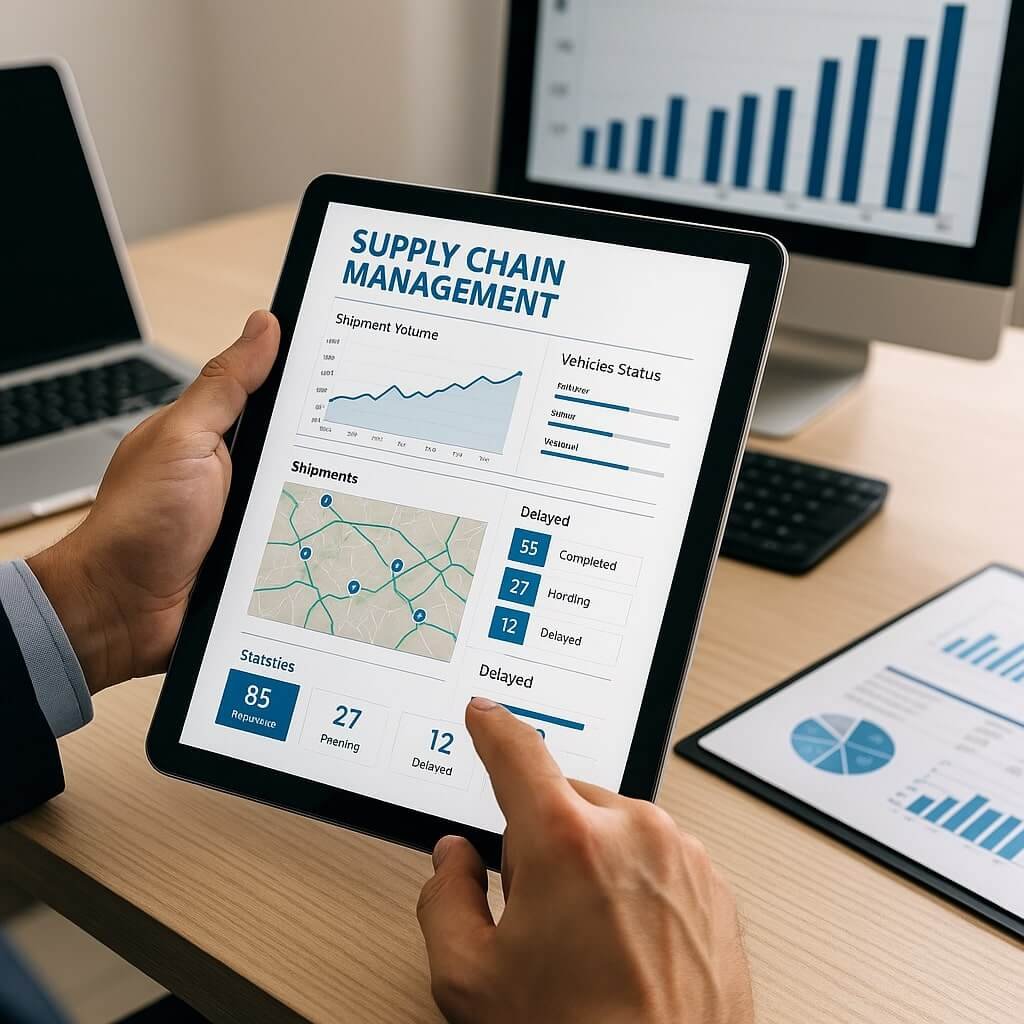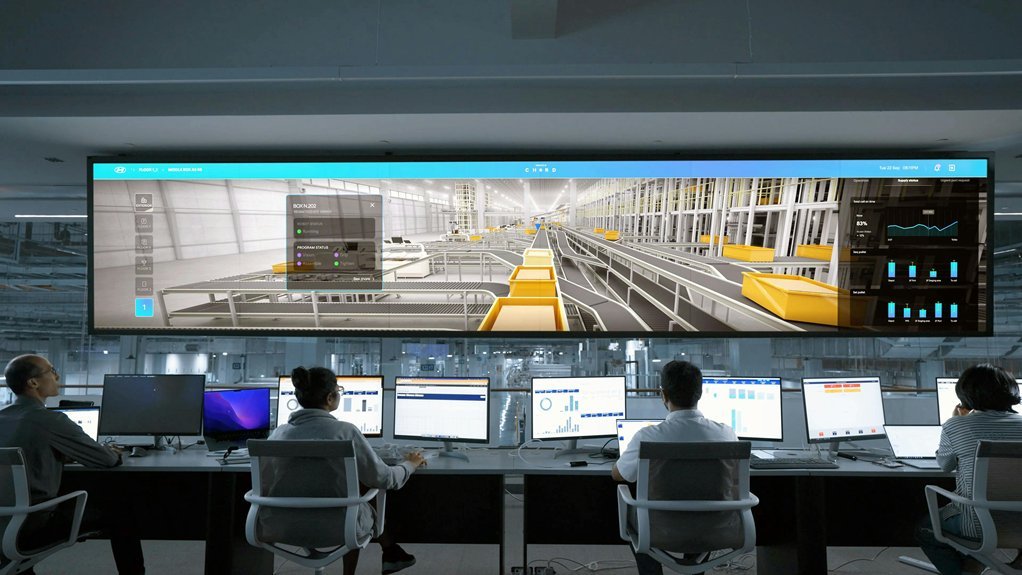The logistics industry today faces a whirlwind of challenges: global supply chain disruptions, escalating consumer expectations, and rapidly evolving technology. Amidst this complexity, businesses are increasingly turning toward custom enterprise software to maintain competitiveness and sustainability.
Managing logistics operations with fragmented tools or outdated systems can lead to delays, miscommunication, and inefficiencies. To mitigate these, many companies are exploring tailored technology solutions that cater to their exact workflows and operational demands.
What is Custom Enterprise Software?
Custom enterprise software is an application or suite of applications designed specifically for a business’s internal workflows and strategic goals. Unlike generic software, it adapts to the unique needs of a company and integrates seamlessly with existing infrastructure.
Some key characteristics include:
- Bespoke architecture
- Personalised user interface (UI)
- Specific functionality aligned with industry needs
- Full control over updates and features
This contrasts heavily with off-the-shelf solutions that often require businesses to adapt their processes to fit the software rather than the other way around.
Why Off-the-Shelf Software Falls Short
Although commercial logistics software like SAP, Oracle, Netsuite, or Zoho Logistics is powerful, it often:
- Lack of industry-specific functionality
- Have rigid workflows
- Introduce unnecessary features
- Charge high licensing fees
- Are slow to adapt to change requests
In contrast, custom-built software evolves with your business, not against it.
1. Streamlined Supply Chain Management
Custom enterprise solutions provide visibility and automation across the entire supply chain.
Real-Time Tracking and Updates
Integrating GPS, RFID, and sensor data gives live status updates across warehousing, shipping, and distribution centres. This reduces downtime and prevents lost inventory.
Integration with IoT and RFID
Using custom integrations with IoT devices ensures better control over goods in transit—temperature-sensitive or high-value items can be monitored proactively.
2. Increased Operational Efficiency
Efficiency is king in logistics, and automation is the crown.
Automation of Repetitive Tasks
Tasks such as label printing, shipment scheduling, or invoice generation can be fully automated. This reduces manual errors and frees up team resources.
Workflow Customisation
Custom software lets you define task sequences, approvals, and alerts that reflect your company’s logic, not a vendor’s template.
3. Enhanced Data Analytics and Reporting
Data isn’t just a byproduct—it’s a strategic asset.
Predictive Analytics in Logistics
With integrated machine learning models, your software can forecast delays, suggest route optimisations, or flag underperforming carriers.
Smart Dashboards for Decision-Making
Customised KPIs and metrics empower logistics managers to make faster, more informed decisions.
4. Improved Customer Experience
Logistics is more customer-facing than ever before.
Better Communication and Transparency
Custom-built systems can send real-time notifications, tracking links, and support updates to clients directly.
Personalised Client Portals
Offer branded, secure portals where customers can place orders, check shipment status, and manage returns seamlessly.
5. Scalability for Business Growth
Growth is a goal, but also a risk if systems aren’t ready.
Modular Architecture
With a modular codebase, your logistics software can grow feature-by-feature without full overhauls.
Multi-Location and Multi-Platform Support
Whether you’re operating across cities or continents, your system adapts to local workflows, regulations, and languages.
6. Cost-Effectiveness in the Long Term
Initial development may cost more, but long-term ROI is impressive.
Reduction in Human Error
Automated validation checks and machine learning-assisted decision-making reduce costly mistakes.
ROI Analysis Over Time
With real-time performance dashboards, you can track your return on investment clearly. Many businesses report 20–30% operational cost savings within the first year.
7. Security and Compliance
Logistics software often manages sensitive client and business data.
Data Protection Standards (GDPR, CCPA)
A well-designed custom platform includes full compliance with regional and global data laws.
Audit Trails and Access Control
Track who did what and when, helping with internal audits and external compliance checks.
Case Study: A Logistics Company Success Story
FleetFlow Inc., a regional courier firm, transitioned from Excel and manual coordination to a custom enterprise logistics platform. Within 6 months:
- Delivery time reduced by 35%
- Misrouted packages dropped to 0.5%
- Employee productivity increased by 40%
- Customer satisfaction scores rose from 72% to 92%
Their custom software included mobile apps, smart dispatch, and dynamic routing—all tailored to their operations.
How to Get Started with Custom Software Development
- Define your goals: What inefficiencies are you solving?
- Evaluate internal workflows: What must the software integrate with?
- Choose the right developer or agency: Experience in logistics is critical.
- Plan for scalability: Think 5 years ahead, not just 5 months.
- Involve your team: Early user feedback reduces later rework.
FAQs
1. How long does it take to build business logistics software?
Most projects range from 3 to 9 months, depending on complexity and feature set.
2. Is custom software better than ERP systems like SAP?
For specific logistics workflows, yes. Custom software provides flexibility and relevance that broad ERP systems often lack.
3. What technologies are commonly used?
Tech stacks include Python, Node.js, React, Flutter, and cloud platforms like AWS or Azure.
4. How much does it cost to develop?
Projects typically start around $25,000 and scale based on features, integrations, and timelines.
5. Can custom software integrate with legacy systems?
Absolutely. Through APIs and middleware, older systems can be extended or connected.
6. Is mobile access possible?
Yes, most custom logistics solutions now include Android and iOS compatibility for drivers, warehouse staff, and managers.
Conclusion
In the evolving world of logistics, custom enterprise software isn’t just a luxury—it’s a necessity. From automating mundane tasks to transforming your the benefits are profound and measurable. If you’re looking to revolutionise your logistics workflow and future-proof your operations, now is the time to build a system that works for you, not the other way around.






